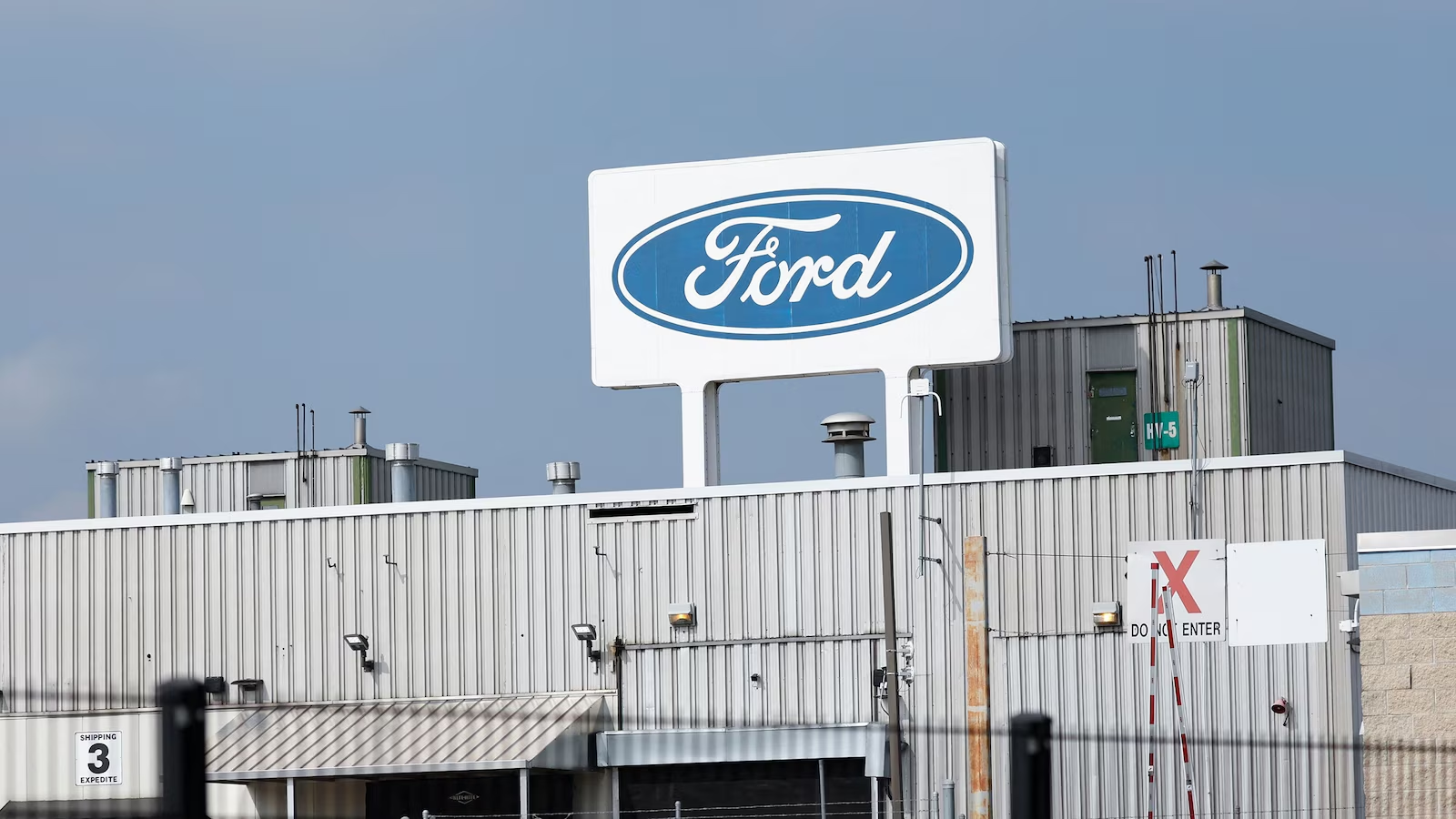“The Ford logo is seen from above Ford’s Chicago assembly plant in Chicago, September 29, 2023. Kamil Krzaczynski/AFP via Getty Images Auto buyers could face higher prices and shortages of some vehicles due to supply chain hurdles, tariffs and problems accessing critical materials, some industry experts told ABC News. A shortage of aluminum suspended production on […]”, — write: businessua.com.ua

The Ford logo is seen from above the Ford Chicago Assembly Plant in Chicago, on September 29, 2023. Kamil Krzaczynski/AFP via Getty Images
Auto buyers could face higher prices and shortages of some vehicles due to supply chain obstacles hampered by tariffs and problems accessing critical materials, some industry experts told ABC News.
An aluminum shortage halted production at Jeep and Ford plants earlier this month, halting production of some Jeep SUVs and Ford trucks, Wall Street Journal reported. Meanwhile, the trade dispute between the US and China has raised questions about the availability of semiconductors, a critical part at the heart of the pandemic-era supply shock.
The disruptions come after sweeping U.S. tariffs hit foreign automakers and added complications for domestic companies long tied to manufacturers in Canada and Mexico.
Headwinds swirling in the auto industry may make it harder for consumers to find the car they want at an affordable price, but automakers may choose to absorb the potential additional costs and ease the pain for buyers, some experts say. For now, they noted, uncertainty about the level of supply disruption leaves the outcome unclear.
“You start rolling it all together and it becomes significant,” Peter Morici, professor emeritus at the University of Maryland School of Business, told ABC News. “I think there’s been too much disruption that it won’t affect car availability if it goes on long enough. The question is whether it will.”
Stellantis, Jeep’s parent company, declined ABC News’ request for comment. Ford did not respond to a request for comment.
In April, steep tariffs of 25% on vehicles imported into the U.S. went into effect, along with price increases on foreign-made cars, SUVs, minivans, cargo vans and light trucks. Hours after the policy was implemented, Ferrari said it would raise prices by 10% on some models to offset the tariffs.
However, large-scale tariff-based price increases never materialized.

Cars are parked on trucks ready for distribution in the vehicle processing parking lot at the National City Marine Terminal on April 26, 2025 in National City, California. Kevin Carter/Getty Images
The policy mostly exempted vehicles covered by the free trade agreement between the US and Canada, known as the US-Mexico-Canada Agreement. For such cars, the tariffs apply only to the value of their non-U.S. contents, a fraction of the total value, the White House said.
Some trade agreements with other countries have led to lower car tariffs, including agreements with leading car exporters Japan and the European Union. Last week, Trump extended a rebate to US automakers to cushion the costs of the tariffs.
However, leading automakers have counted hundreds of millions of dollars in tariffs. Those costs may coincide with aluminum and semiconductor availability issues, some experts say.
“The fact that it’s just hitting them is a challenge for the automakers,” Jessica Caldwell, head of research at Edmunds, told ABC News, noting that companies have yet to pass the cost on to consumers in the form of higher prices.
“We haven’t seen a lot of impact from tariffs; we haven’t seen a lot of impact from the supply chain. That doesn’t mean we won’t eventually,” Caldwell added.
Earlier this month, China significantly tightened its restrictions on rare-earth elements, which are part of semiconductors found in many products from cars to homes. devices
The move prompted President Donald Trump to threaten 100% tariffs on all Chinese-made goods next month. Beijing has publicly stood firm on this policy, leaving the two sides at a standoff with huge implications for US automakers.
“Semiconductor is a concern because it’s so many things in a car. It’s not just the body panel, it’s the seats, the entertainment system — basically, anything,” Caldwell said.
To be sure, the ultimate consumer impact of a supply chain disruption remains uncertain, experts say. Automakers may continue to absorb the costs associated with the tariffs as they try to keep prices level and protect their market share, they added.
“I see manufacturers absorbing more pain in the short term so they don’t lose customers,” Joseph McCabe, president and CEO of consulting firm AutoForecast Solutions, told ABC News.
Even so, the cloudy forecast is prompting some buyers to move forward with a planned purchase rather than wait for better conditions, Caldwell said.
“It’s probably a good idea to keep your eyes open for deals,” she added. “I wouldn’t have hesitated, I would have bought sooner than thinking, ‘Maybe there will be a better time to buy in the future.’ I’m not sure it will.”
Morici of the University of Maryland agreed. “If you want to buy a car within the next month, you should do it – if you can get a good deal,” Morici said.
Source: abcnews.go.com
Please wait…
